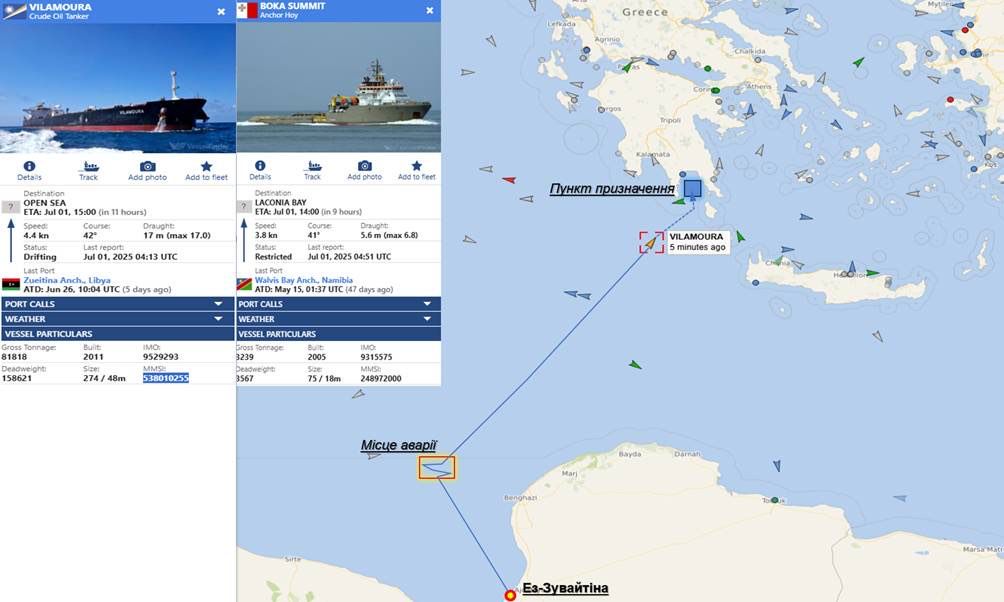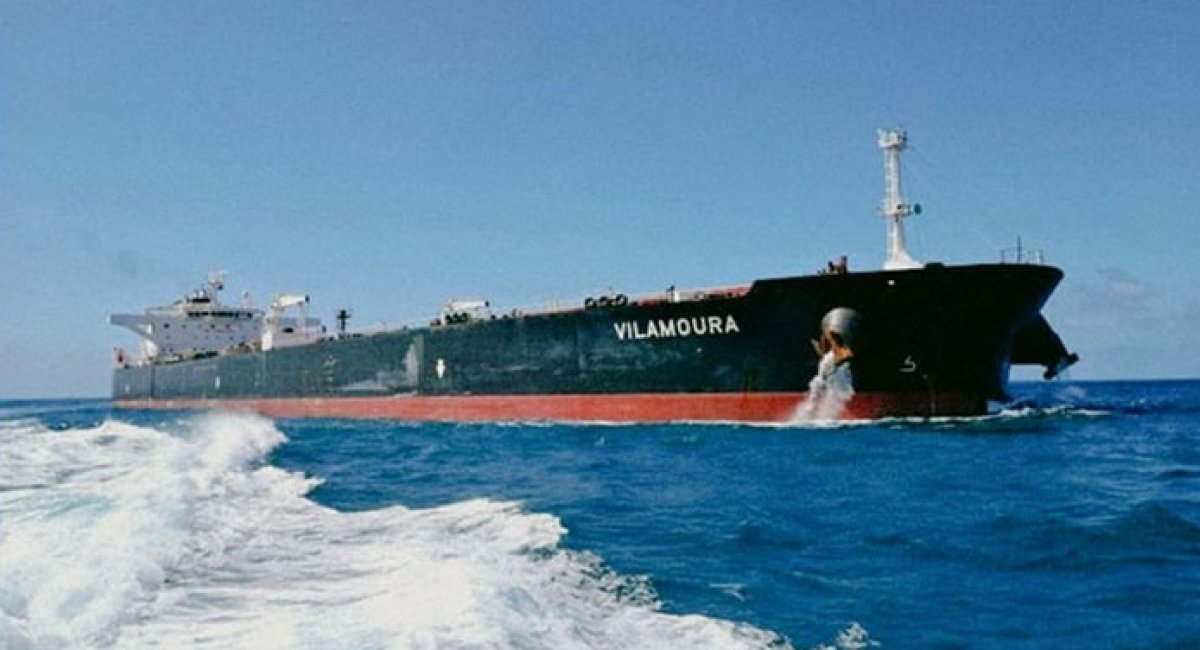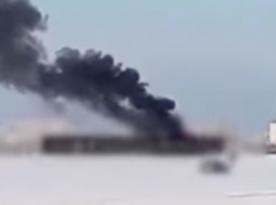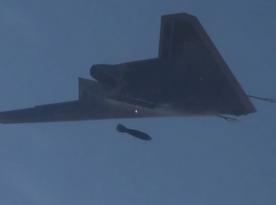On June 27, 2025, the Vilamoura oil tanker, linked to russia's so-called shadow fleet, suffered a powerful explosion in its engine room while transiting the Mediterranean Sea. The incident occurred roughly 150 kilometers northeast of Libyan territorial waters, as the vessel was en route from the port of Zuwetina, Libya.
The Vilamoura tanker was carrying at least one million barrels of crude oil at the time of the explosion. The tanker was sailing under the flag of the Marshall Islands, a common tactic used by russia's shadow fleet to conceal the true ownership and origin of vessels involved in sanctioned or opaque oil trade.
Read more: Ukrainian Navy Receives Two Minehunters from Belgium and the Netherlands, with Another One on the Way — Why This Matters
This tanker has a known history of transporting russian oil products, having docked at the Ust-Luga terminal in April 2025 and operating in the vicinity of Novorossiysk in May. Such movements suggest the Vilamoura tanker was likely participating in sanctions-evasion schemes to export russian oil via third-party ports and intermediaries.

The explosion highlights the growing risks and vulnerabilities of russia's shadow fleet, a loosely regulated network of aging tankers, shell companies, and reflagged ships used to circumvent international restrictions on russian oil exports.
As of July 1, the damaged vessel is being towed by the Maltese-flagged Boka Summit fire tug to Greece's Laconian Gulf for damage assessment. Maritime observers note that while the fire did not cause the tanker to sink, the incident raises fresh concerns about safety, environmental risks, and the murky operations of the fleet.
The Vilamoura ship is owned by TMS Tanker Ltd., Greece-based company headquartered in Marousi. It remains unclear whether the explosion was accidental, the result of technical failure, or potentially linked to external interference. No official cause has been confirmed.
This incident adds to growing scrutiny over the role of Western-registered shipping firms in facilitating russia's wartime energy trade. It may prompt renewed calls for stricter enforcement of maritime sanctions, inspections, and transparency in global oil shipping practices.
Read more: The UK Defense Intelligence: Vladimir Putin Endorses Long-Term Naval Strategy Amid Black Sea Setbacks














